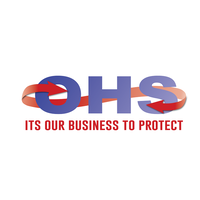New UAE Federal Labour Law Announced
Date Posted:Fri, 25th Mar 2022

Caroline Savage, Corporate OHS Health and Safety Consultancy provides an Insight on the impact the new law will have on HSE professionals in the region and how they may best approach and conduct their work in light of the changes
Background:
The UAE Government announced significant legislative change as part of the UAE’s 50th anniversary. The legal reforms constituted the biggest legal shake up in the country’s history. Included in the announcements was a new UAE Federal Labour Law – the first in over 40 years.
Federal Decree by Law No. 33 of 2021 Regulating Labour Relations, supersedes in its entirety Federal Law No. 8 of 1980 Labour Law, and became enforceable from the 2nd January 2022. Alongside the new law will sit Executive and Implementing Regulations.
As federal health and safety law is primarily derived from Labour Law – it’s impact on the UAE health and safety community cannot be underestimated.
Caroline Savage from Corporate OHS, a UAE based health and safety consultancy, will discuss below the impact the new law will have on HSE professionals in the region and how they may best approach and conduct their work in light of the changes.
For some background, what were the previous Federal Laws as regards Occupational Health and Safety in the region?
The previous health and safety legal regime was primarily derived from Labour Law Federal Law No. 8 of 1980 and applicable to almost all employees working in the UAE. Implemented in conjunction with supplementary Ministerial Decisions, for example, Ministerial Decision No.32/1982 on determining prevention means and measures to protect workers from work hazards.
Employees working in the free zones in the UAE - with the main exception of DIFC, were also subject to the Labour Law and if subsequent employment regulations were introduced in a freezone then Labour Law took precedence if there were any inconsistencies, unless the Labour Law was less favourable than the relevant provision of the freezone regulation.
The law imposed a number of health and safety obligations on employers, including a general duty to ensure a safe workplace for employees. It also imposed obligations on the employee to abide by the occupational safety and health instructions given by the employer.
What region/s will the new Laws govern?
The new Federal Labour Law No. 33 of 2021 will apply to almost all employers and employees working in the private sector in the United Arab Emirates.
Are there any exceptions to compliance with the Law for the private sector ?
The new Federal Labour Law No. 33 of 2021 applies to all private sector entities across the UAE, including freezones, with the exception of the DIFC (Dubai International Financial Centre) and ADGM (Abu Dhabi Global Market) freezones.
Why now? What is happening in the region to spur these new Laws?
As mentioned, the release of the new Federal Labour Law No. 33 of 2021 was part of a raft of “Year of the 50” new laws which also included new Commercial Companies Law, Cybercrime Law, Trademark Law, Copyright Law, Data Protection Law and E-Commerce Law.
From a health and safety perspective, what are the primary differences between the past Labour Law and the new Labour Law?
Some of the primary differences which will concern anyone tasked with health and safety are:
New working hours in full time contracts – Defined as working for a single employer for full hours of work throughout all working days. Overtime is now capped at 144 hours of work in a 3 week period with employees only allowed to work a maximum of 2 overtime hours per day.
Exemptions to the 48 working hours per week are outlined which include: crews of naval vessels and others working at sea, business whose technical nature requires a continuation of work through successive shifts - provided that the average working hours do not exceed 56 hours per week and preparatory or complementary works that must be carried out outside the general time limits for work.
New part time contracts – Defined as working for one or more employer for a specified number of working hours or days.
New temporary contracts – Defined as work carried out for a specified duration or specific task.
New flexible contracts – Defined as work involving variable working hours or days.
New remote contracts – Defined as where all or part of the work is performed outside of the workplace.
New job sharing contracts – Defined as where tasks and duties are divided between more than one worker.
New contracts for young persons – Defined as age 15 and over.
A new and explicit prohibition of sexual harassment and bullying – be it verbal, physical or mental violence by the employer, managers, colleagues, or co-workers is detailed. This of course will have repercussions on how companies, which will primarily concern the HSE Manager or person responsible for HSE, handle risk assessments and safe working practices.
The Implementing Regulations also state that companies with 50 or more employees must prepare internal work procedures which include information on health and safety procedures and measures to avoid workplace injury ie. HSE management and a documented HSE management system must be put in place.
What does the UAE based HSE professional need to consider in regard to the new Federal Laws ?
All of the above ! Article 13 in particular states that all employers must provide the necessary means of prevention to protect employees from the dangers of occupational injuries and diseases that may occur during work, ensure the provision of guidance and awareness regulations e.g. Induction training, provide appropriate training for workers to avoid such risks and conduct periodic evaluation e.g. Risk assessments.
How would you advise anyone tasked with HSE in their company to approach the necessary changes required?
Every company must of course review all of their health and safety polices, procedures and legal registers once a legislative change has occurred, it is also one of the essential components of continuous improvement. It may feel like a large task to complete but approaching it in a methodical manner will help enormously.
Initially, I would advise a company to assess the health and safety provision that they currently have in place. The company’s in house HSE Manager, or an HSE Consultancy such as Corporate OHS, would perform a gap analysis to identify where change is needed. There would be an assessment of the current Legal Risk Registers and how HSE roles and responsibilities within the company are discharged. The gap analysis would also include a review of the companies HSE training programme and materials, HSE procedures and risk assessments etc.
The review would then drill down into the specifics of the changes identified in the gap analysis, a couple of examples include; revisiting all risk assessments to incorporate the additional risks arising from employing young persons inexperienced and unfamiliar with work environments and possibly unable to recognise hazards as a potential source of danger. Further revisiting risk assessments to ensure that staff working remotely had been adequately considered, for example, are provisions in place to sufficiently control hazards arising from economics and possible additional stresses to mental health ?
What practical steps can employers take in general as regards health and safety ?
In general companies should be assessing their work activities and identifying areas of particular high risk. Developing a Legal Register showing where compliance to health and safety law must be applied.
Displaying health and safety requirements clearly on site in both English, Arabic and any other language understandable by employees.
Working with employees to undertake risk assessments; identifying all significant hazards, evaluating these hazards and developing and implementing adequate control measures.
Developing safe systems of work and standard operating procedures to control specific work activities.
Developing a reporting mechanism to address HSE issues raised by employees.
Developing emergency procedures, including evacuation plans. Ensuring that if an emergency did occur, then there was a response plan in place for workers to follow.
Adopting necessary measures to protect employees from occupational hazards including the provision of safety clothing and/or tools for personal protection, setting up safety barriers around hazardous equipment and machinery, taking necessary precautions regarding storage and disposal of hazardous materials
Training must also be given to both workers and management on the significant hazards/areas of concern identified in risk assessments, in addition to the control measures required to conduct work activities safely and without risk to employees health and safety.
What are the penalties for not working in compliance with the Laws?
Fines range from 5,000 to 1,000,000 AED for breaches of the Labour Law, these can be multiplied by the number of employees subject to a breach up to a cap of 10,000,000 AED.
Ministry of Labour Inspectors can enter and inspect workplaces at any time without prior notice and impose any measures aimed at averting any danger or risk to employees. This may occur regardless of whether a workplace accident has occurred or not.











